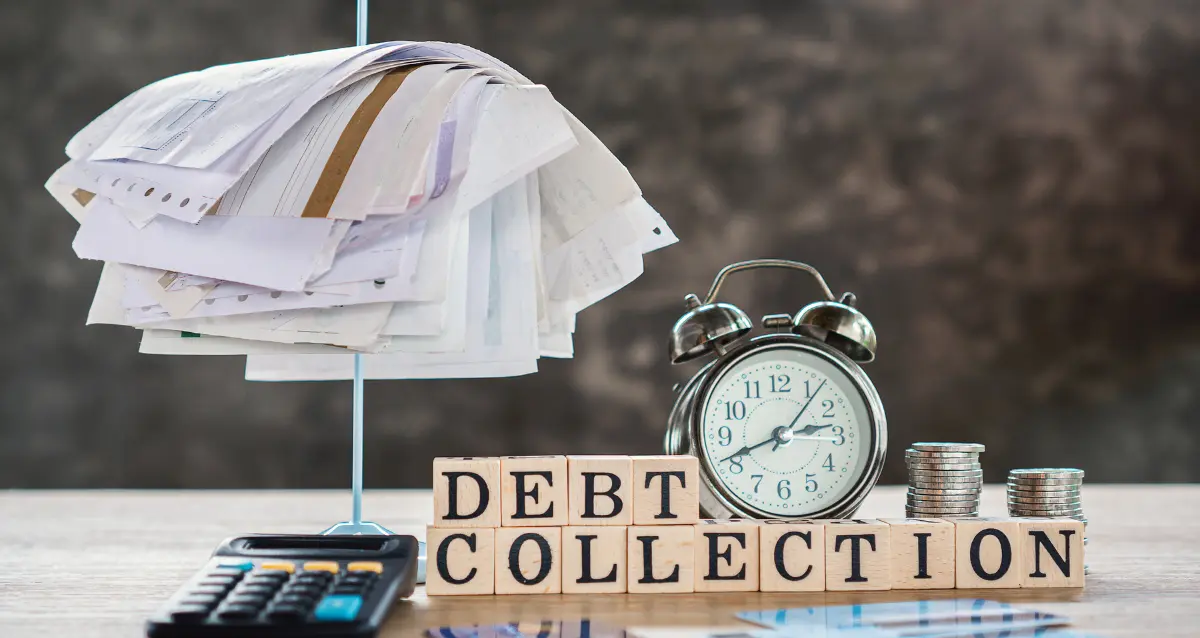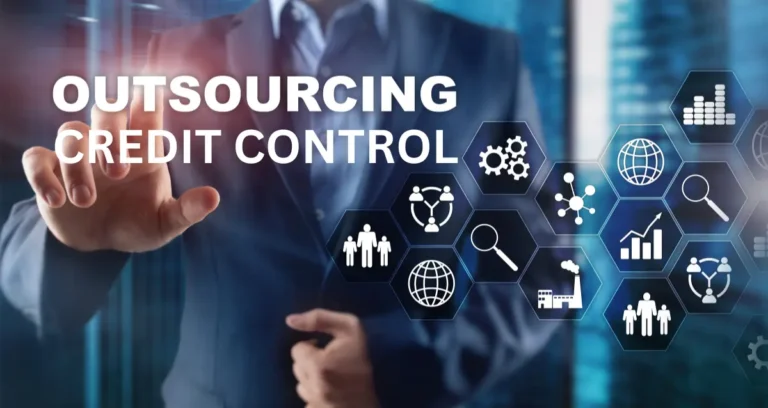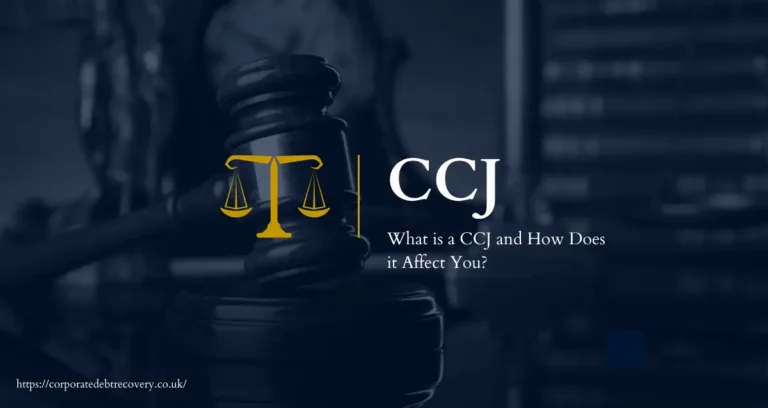Understanding How to Collect Debt: A Comprehensive Guide for Creditors
Facing overdue payments? Discover how to collect debt effectively with our direct guide. From choosing between in-house methods and agencies to understanding legal routes and ethical considerations, we provide concrete strategies to help you recover your funds. No fluff, just actionable insights tailored for creditors.
Key Takeaways
- Debt collection is a structured process beginning with identifying past due debts, initiating debtor contact, making payment arrangements, and can include hiring agencies that charge 10%-50% of the recovered amount.
- Creditors can choose between in-house debt collection for maintaining customer relations and using external agencies for their expertise, with legal actions like garnishments and property liens being options following court judgments.
- Ethical debt collection standards are enforced by regulatory bodies such as the Financial Conduct Authority, and affected individuals can seek free debt advice services or file complaints about collection practices with the Financial Ombudsman Service.
Navigating the Debt Collection Process
Businesses rely on debt collection as a key method to recover delinquent funds. The debt collection process typically involves the following steps:
- Identifying past due debts
- Initiating contact with debtors
- Making payment arrangements
- Requesting payments to be made in full or negotiated in installments
- Collecting debts in various forms
- Negotiating settlements for debts that are especially difficult to collect
Debt collection agencies are often hired to handle these tasks, as debt collectors work to help businesses recover their funds.
The fee for collection agencies, paid by creditors, usually ranges from 10% to 50% of the recovered delinquent debt amount.
Identifying Past Due Debts
When a borrower fails to make a payment by the due date specified in the lending agreement, the debt is considered past due. The criteria for classifying a debt as overdue can hinge on the number of days a payment is late, with common thresholds being 30, 60, and 90 days overdue. Creditors often define a ‘minimum payment’ that must be met to keep the account in good standing and avoid being marked as a past due debt.
To aid in the prompt identification of past due debts, creditors implement monitoring systems that flag accounts with missed or late payments. Once an account is identified as overdue, it is tracked separately for further action, such as pursuing debt recovery measures or adjusting the credit terms.
Initiating Contact with the Debtor
Upon identifying a debt as overdue, debt collectors engage in discussions about the overdue debt, making use of methods such as phone calls, emails, and direct mail, which are some of the common debt collector contacts.
Creditors are legally obligated to inform debtors of any transfer in debt ownership, upon which debtors will be directed to the new debt owner for all future debt payments. Specific procedures for initial contact with debtors ensure clear and effective communication.
Making Payment Arrangements
In situations where debt is unaffordable, individuals are advised to seek advice from a free specialist debt adviser, contact a free specialist debt advice service, and ask the debt management company to place a hold on the account.
There is a range of repayment options available, from informal solutions like negotiating reduced payments with creditors to formal insolvency options such as Bankruptcy and Debt Relief Orders. These options provide different ways for individuals to address their financial difficulties.
The Role of In-House Debt Collectors vs. Debt Collection Agencies
When it comes to debt collection, businesses have two main options: utilizing in-house debt collectors or outsourcing to debt collection agencies. In-house debt collectors are typically employees of the original creditor, while debt collection agencies are separate entities that may either be hired to collect debts or may purchase debts from the creditors.
Debt collection agencies bring specialised skills and resources to the table, which can make them more efficient in recovering debts in certain situations.
While in-house debt collectors concentrate on managing collections within the business framework, debt collection agencies may have a broader scope for actions, including various methods for pursuing debt recovery on behalf of the creditor.
When to Use In-House Debt Collectors
In-house debt collection allows businesses to maintain direct communication with debtors, fostering better customer relations and trust. Businesses typically utilize in-house debt collectors for early-stage debt recovery, suitable for less severe cases where preserving ongoing business relationships is a priority.
The choice between in-house debt collection and outsourcing often boils down to the scale of operations and budget constraints. Smaller businesses may opt for in-house debt collection due to budget constraints, while larger companies may choose it to retain control over the process.
Outsourcing to Debt Collection Agencies
On the other hand, businesses tend to outsource debt collection to agencies when facing unresponsive debtors or when in-house resources for debt recovery are insufficient. Instead of selling the debt, creditors may choose to hire collection agencies to pursue debts on their behalf.
Debt collection agencies provide comprehensive services, including debtor contact, negotiating payment plans, and potential legal actions as part of the debt recovery process. They are equipped with specialized training, legal knowledge, and advanced technology, making them adept at enhancing the likelihood of debt recovery.
Hiring debt collection agencies can be cost-effective for businesses as these agencies utilize effective infrastructure and resources, minimizing the overhead costs of internal collection operations.

Legal Powers and Limitations in Debt Collection
Understanding the legal powers and limitations of debt collectors and bailiffs is vital in the field of debt collection. Bailiffs, also known as enforcement agents, have legal powers to collect a debt that includes the ability to return to take items and sell them to pay the debt if agreed payments are not made.
On the other hand, debt collectors, unlike bailiffs, do not possess special legal powers and can only recover debts by contacting and negotiating with the debtor, or taking legal actions like placing levies or property liens after obtaining a court judgment.
Court-issued orders can be enforced by creditors to extract information from debtors. Non-compliance may lead to a prison sentence for contempt of court. When collecting from individuals or businesses, bailiffs can force entry under certain conditions like non-payment and are typically more powerful when dealing with business debts. Individuals have rights when bailiffs enter their homes but are advised not to allow them in.
Understanding Court Action in Debt Recovery
Court action plays a vital role in debt recovery. Creditors have the option to initiate court action by pursuing a court judgment or issuing a statutory demand for payment when a limited company cannot fulfill its debt obligations. If a debtor does not adhere to a County Court Judgment (CCJ), creditors can request a court order to obtain information about the debtor’s financial situation.
To pursue court action, a business must provide evidence including:
- the original agreement
- account notes
- a history of payments made
- tracing activity
- steps taken to verify the debtor’s identity and claim accuracy.
Can Debt Collectors Garnish Bank Accounts or Wages?
A crucial question that often arises is whether debt collectors can garnish a debtor’s bank accounts or wages. In fact, a debt collector can do so only after obtaining a court judgment against the debtor.
Following a court judgment, creditors use the financial details from the order to decide on enforcement actions, such as wage garnishment or securing debts against property.
Dealing with Non-Payment: Next Steps for Creditors
In the face of non-payment, creditors can resort to several available options. They can report delinquent debts to credit bureaus, which can have a significant negative impact on a debtor’s credit score and act as a motivator for payment. Debt collection agencies can also report non-payment to credit bureaus, providing higher recovery rates and creating additional pressure for debtors to resolve their dues.
As an alternative to in-house collections, creditors have the option to sell the debt to a collection agency, thus passing on the collection process to specialists. If other collection efforts fail, creditors can initiate legal actions, such as filing a lawsuit, to recover unpaid debts.
Selling Debt to Debt Buyers
To recoup some losses and evade additional collection costs, creditors frequently sell debts to third-party purchasers at discounted rates. After selling a debt, the debtor owes the amount to the new debt owner, who is required to follow the same legal rules and terms that were established by the original creditor.
Legal Recourse for Unresolved Debts
For unresolved debts, recourse to legal proceedings remains a viable option. Creditors in the UK can initiate legal proceedings against non-compliant debtors to collect unpaid debts. Before initiating court action for unpaid debts, UK creditors are required to send debtors a default notice, a letter of claim, and a claim pack in line with the Consumer Credit Act.
Legal action for unpaid debts can lead to the issuance of a County Court Judgment against the debtor.

Providing Free Debt Advice to Vulnerable Customers
During the debt collection process, special attention should be paid to those who are particularly vulnerable. These individuals should seek free debt advice if they are worried about debt collectors or bailiffs. Free impartial debt advice services help individuals prepare a budget, explain options, and work out a realistic amount to pay towards their debts.
The National Debtline, a registered charity, offers the following services:
- Free, impartial, and expert advice to over 100,000 people each year
- Personalized plans after conducting a budget analysis
- Telephone casework, addressing urgent questions, and offering long-term debt resolution plans
Debt collection agencies are required by the Financial Conduct Authority to have specific policies for handling vulnerable customers, which may include granting a hold on an account for up to 28 days. National Debtline partners with organizations like Citizens Advice and Mental Health and Money Advice to provide these services.
Tailored assistance from debt advice services is available for customers with personal or health issues that affect financial management, ensuring advice meets their confidentially shared information.
Ethical Practices in Debt Collection
Emphasizing ethical practices is of utmost importance as we explore the complex world of debt collection. Ethical debt collection practices reflect the core values and ethos of a business and emphasize understanding, empathy, and human elements of debt situations. Maintaining ethical standards in debt collection not only ensures legal compliance but also fosters trust and a positive relationship between collector and debtor.
Businesses adhering to ethical debt collection methods are likely to enjoy a positive reputation and attract both potential customers and employees who value integrity. Debt Collection Agencies in the UK must comply with regulations established by the Financial Conduct Authority (FCA), which sets rules for their conduct. Ethical debt collection involves transparent communication with the debtor and avoiding aggressive recovery tactics.
Prioritizing ethical practices in debt collection by businesses can elevate industry standards and lead to a culture shift towards more respectful and effective debt recovery.
Handling Disputes and Complaints
Should a dispute or complaint arise related to debt collection practices, individuals have the right to submit their complaints to the Financial Ombudsman Service (FOS). When a complaint about debt collection is filed, it is expected to include the complainant’s perspective of the events.
Creditors are required to reply to a customer’s complaint regarding a logbook loan within eight weeks from the date of the complaint receipt. If customers are dissatisfied with the creditor’s response to their complaint or don’t receive a reply within specified time limits, they can escalate the matter to the relevant authority.
Upon receiving a relevant complaint, the authority will investigate to determine the merits of the issue brought forward. The person who has been asked to make payment on a debt has the right to make a complaint about the debt collection practices used.
If a business is found to have wrongfully treated a consumer or acted incorrectly, it is expected to rectify the situation by putting the customer back in the position they would have been had the problem not occurred.
Summary
Navigating the world of debt collection can be a challenging task for both creditors and debtors. It requires a careful balance of legal knowledge, negotiation skills, and ethical practices.
Throughout this guide, we have explored the key steps in the debt collection process, the roles and benefits of in-house debt collectors and debt collection agencies, the legal powers and limitations of debt collectors and bailiffs, the options available to creditors when dealing with non-payment, the importance of offering free debt advice to vulnerable customers, and the necessity of ethical practices in debt collection.
The process of debt collection is not just about recovering money; it is about negotiation, understanding, and maintaining relationships. It is about treating each case with the respect and fairness it deserves. As we continue to navigate an unpredictable economic landscape, these principles will be more important than ever.
Frequently Asked Questions
What is the role of in-house debt collectors versus debt collection agencies?
Debt collectors employed in-house handle collections on behalf of the original creditor, while debt collection agencies are separate entities that are hired or purchase debts from creditors and bring specialized skills and resources that may make them more efficient in recovering debts.
When can a debt collector garnish a debtor’s bank accounts or wages?
A debt collector can only garnish a debtor’s bank accounts or wages after obtaining a court judgment against the debtor. This is the legal requirement for garnishment.
What options do creditors have when dealing with non-payment?
When dealing with non-payment, creditors have options such as reporting debts to credit bureaus, selling the debt to a collection agency, or initiating legal actions like filing a lawsuit to recover unpaid debts. It’s important for debtors to communicate with creditors to explore potential solutions.
What help is available for vulnerable customers worried about debt collectors or bailiffs?
Vulnerable customers worried about debt collectors or bailiffs should seek free debt advice, where they can get help preparing a budget, understanding their options, and working out a realistic repayment plan.
What is the importance of ethical practices in debt collection?
Ethical practices in debt collection are important as they ensure legal compliance, foster trust, and positive relationships, and can lead to a culture shift towards more respectful and effective debt recovery. Ethical debt collection practices benefit both collectors and debtors.







